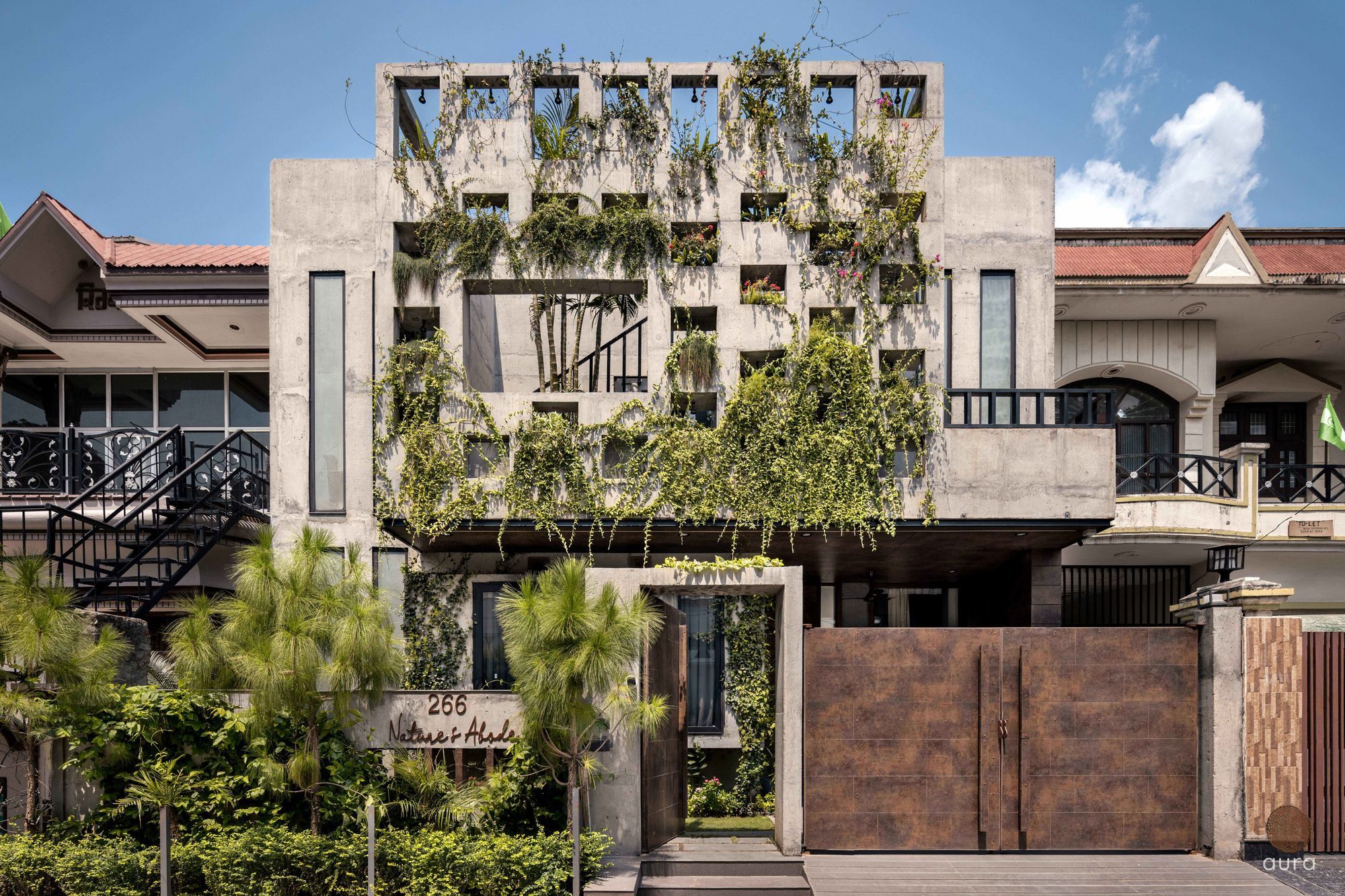Designed To Grow Greener With Time, This Haryana Home Is An Embrace Of Nature
With muted concrete allowed to be overpowered by the diverse plant species, the architects and clients of Nature’s Abode go all out in submerging this house in all elements natural.

FACT FILE
TACKLING THE WEATHER
The Garg family's residence, Nature's Abode, is situated in Shahabad, Haryana, a town known for its extreme temperatures and dry weather conditions. The architects were faced with several contextual challenges in designing a structure. The most prominent was that the house would be catering to the harsh weather conditions throughout the seasonal cycle. To that extent, decisions about the selection of appropriate materials, installation, and configuration and ensuring their durability in the long run become of paramount importance.
To tackle the recognised challenges, the architects responded to the context of the site by proposing an innovative solution. They installed a live green wall system with built-in concrete planters as the front façade, which not only caters to the weather conditions but also creates a stunning visual at the entrance. The use of concrete as a material was a strategic choice made as it is intended to blend in with the greens over time, creating a harmonious theme that makes the structure appear as if it had grown out of the surrounding environment. This blending of materials and context speaks of the careful consideration and planning put into the design of the house.
THE DESIGN OF THE HOUSE
As you step inside Nature's Abode, a sense of calmness and serenity immediately engulfs you. At the front, a water body has been incorporated alongside green niches that continue to create the illusion of the built mass having sprouted from the earth. The open planning of the ground floor creates a seamless flow from the foyer and drawing area to the double-height living area, which furthers flows out into a lush-green backyard. Attached next to the foyer are the dining and kitchen spaces, which flow out into a lobby, which goes on to frame the entries of the two bedrooms on the ground floor.
The openness of the space caters to the functionality of housing large gatherings of guests as well as inviting a play of light, wind and shadows on all days. To continue the visual fluidity of the plan, the staircase has been designed to be materially minimal with a sleek design.
On the upper floor, a corridor runs across the space starting from the dropoff by the staircase and ending at the green walled balcony space. The floor houses two more bedrooms and a lobby. The house makes the most out of the north-south orientation by giving the bedrooms and the lobby full-height windows on the north wall.
MATERIALISING NATURE INTO THE ABODE
‘Nature’s Abode’ is more than just a house — it is a modern-day structure that embodies a natural brise soleil, using carefully chosen plants to mitigate heat gain and create a unique and efficient living space. The plant species include different types of ferns, curtain creepers that flow downwards and a lot of seasonal flowering plants.
The materials used, while not indigenous, are still vernacular and locally developed and sourced. The teams and skilled workers employed were sourced locally as well.
The rear garden of Nature's Abode is filled with various trees that reflect the traditional Indian style. A rudraksha tree was intentionally planted in the central courtyard not only for its religious significance but also for its medicinal properties. The courtyard is also adorned with money plants and Bermuda grass.
The 220-square-meter house seamlessly combines aesthetics and functionality with a focus on natural textures, including concrete, steel, clay, and wood, paired with blue, grey, and white accents.
Be it the 12 feet long reading space overlooking the courtyard on the first floor or the other splashes of material throughout the house, they have all been picked to complement the palette of the house in a way that the natural green of the vegetation always stands out.
